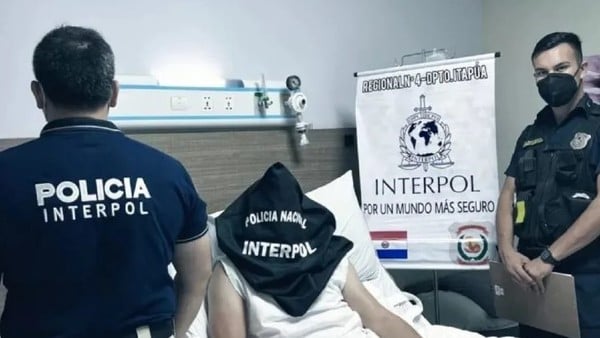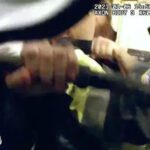Global Courant 2023-05-05 22:21:56
He had been detained after arriving at a hospital after being shot. Now the extradition has been achieved and he will be tried in Bahía Blanca.
Paraguayan drug trafficker Aureliano Villalba Cabrera (33) was finally extradited to Argentina, where a case is pending for the failed attempt to ship almost 200 kilos of high-purity cocaine hydrochloride in seven bags on an overseas ship. He had been arrested last December, almost by chance, after he arrived at a police station in his native San Pedro del Paraná with two bullets in the leg and presented himself as the victim of an ambush when he was returning from a birthday party.
Villalba Cabrera believed that his move had been perfect. The agents urgently took him to a sanatorium, where just a few hours later they told him that he was being detained because he had an international arrest warrant requested by a federal judge in Argentina.
The drug trafficker felt that luck was turning his back on him once again, as had happened in June, when together with other members of his organization they tried unsuccessfully to sink a semi-rigid boat after the frustrated shipment of almost 200 kilos of cocaine on a ship that was leaving from Bahía Blanca bound for the Old Continent.
The investigation began when the boat appeared adrift, with both pontoons punctured. Inside, some fishing and security elements were found, but nothing was known about the occupants. The RIB had been purchased very recently for $25,000.
Aureliano Villalba Cabrera, arrested for trafficking 200 kilos of cocaine, extradited to Argentina. Photo: Courtesy
The Prefecture established that the owner was Aureliano Villalba Cabrera, who had also processed his helmsman’s license a few days before. In addition, the receipt for a hotel in the area was found inside the boat and thus it was possible to identify other people who participated in the failed shipment of the million-dollar shipment of cocaine. One of them was Emiliano Ángel Villalba Cabrera, Aureliano’s older brother.
The Federal judge of Bahía Blanca, María Gabriela Marrón, established that the Villalba Cabrera brothers were the ideologues of the drug shipment maneuver, a fact in which a cousin, Lilian Cabrera, also participated; and her former partner, the former Buenos Aires policeman Emanuel Peralta. The former agent was listed as the owner of the Ford Ranger in which Aureliano was traveling, to whom he granted a driving license. That truck was used to transport the semi-rigid and the cocaine to the Bahía Blanca area.
But it was also established that the Villalba Cabreras were relatives of Paraguayan Gustavo Sotelo Cabrera, who was also arrested for trying to load cocaine onto ships in the port of Zárate. In her resolution, the judge made it clear that the detainees were not the owners of the shipment and that Aureliano decided to disappear for fear that the financier of the operation would retaliate for the loss of two million dollars in cocaine. The narco is only known so far as “El señor”.
Two months after the loss of the shipment, Aureliano told his relatives that he had to disappear because he had a big problem. And that he feared for their lives as well because what he had lost was a lot.
“The criminal hypothesis is limited to the transfer and/or transport of cocaine hydrochloride, in the amount indicated above, in bags, using the Al Ilafen II boat as a means of doing so within local jurisdiction, to a larger vessel that has not yet identified, fit to make an ocean crossing”, explained the judge when resolving the procedural situation of the first four detainees.
The judge also verified that Aureliano had a standard of living that was not consistent with that of a person who does not record jobs or income. She explained that in his name there are “two boats, cars, including some high-end ones, and a fifth house, with a tennis court.”
The Paraguayan drug trafficker was handed over to the Argentine Federal Police, who must transfer him to Bahía Blanca for investigation and prosecution. From Aureliano’s defense they argued that the drug trafficker was in Paraguay when the failed cocaine maneuver was carried out and argued that he could only be prosecuted for concealment. This claim has already been rejected by the Federal Justice, which decided to maintain the charge for “narcotics trafficking, in the form of transport, aggravated by the intervention of three or more people organized to commit it, in ideal competition with the crime of smuggling, qualified tentatively.”
Missions. Correspondent
SC




